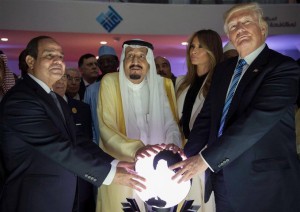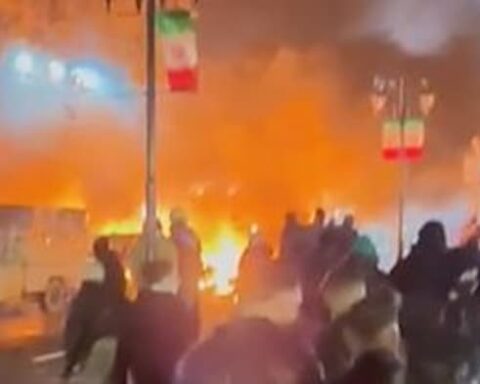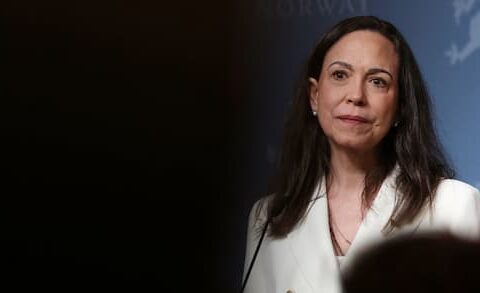It was difficult to work out exactly what is behind the ‘Qatar Diplomatic Crisis’ that seemed to suddenly emerge early in June.
The Qatar diplomatic crisis apparently began on 5th June when several countries – principally Saudi Arabia, Egypt, Bahrain and the UAE – abruptly cut off diplomatic relations. This included trade and travel bans.
Subsequent to this, the Saudi-led group of governments has issued an ultimatum to Qatar in the form of a list of demands that the Gulf State will have to meet.
Why? On the surface of it, Saudi Arabia and the other countries have criticised Qatar for funding terrorist organisations. There has also been criticism of Qatar’s relations with Iran and criticism too of the Al-Jazeera broadcaster that is based in Qatar.
Donald Trump joined in, endorsing the isolation of Qatar and accusing it of being a state sponsor of terrorism.
My immediate thinking was that this is all a scripted pantomime being played out for public consumption.
When President Trump was in Saudi Arabia a few weeks ago and his big, dramatic summit was held, he gave a big speech – directed at Muslim governments – about stopping all support for extremists and terrorist groups. ‘With God’s help, this summit will mark the beginning of the end for those who practice terror and spread its vile creed,’ the president had said. ‘At the same time, we pray this special gathering may someday be remembered as the beginning of peace in the Middle East—and maybe, even all over the world. But this future can only be achieved through defeating terrorism and the ideology that drives it…’

It seems likely that this plan to ostracise Qatar was already on the cards before Trump even made the speech: what has immediately played out (in regard to Qatar) might simply have been a related script in which Trump gets to look like he’s taking hard action against terrorists and their supporters in the Middle East; and then, by sanctioning and condemning Qatar, the Saudis get to look like they’re cooperating with the US President and acting against state-sponsors of terrorism in the region.
Essentially, everyone (accept Qatar) gets to look good and it seems like decisive action is being taken.
The cleverness of this is that no one can dispute Qatar’s activities in state-sponsored terrorism. The problem with it is that the Saudis aren’t exactly innocent bystanders.
That Qatar has been a key player in funding and supporting terrorism and extremism in Syria (as well as in Libya and elsewhere) is beyond dispute. Qatar played a major role on the ground in Libya in the operation to overthrow Gaddafi and a major role in supporting jihadist militias in Syria in the programme to overthrow the Syrian state. In addition to this, of course, its broadcaster – Al-Jazeera – played a major, central propaganda role in the Arab world in facilitating the collapse of Libya and the demonisation of both the Gaddafi government and the Assad government.
And Qatari money has been behind much of what has been tearing up the Middle East.
However, to suggest that Qatar has been doing all of this alone is a joke. The Saudis and Qatar have appeared to be hand-in-hand the entire time. Both were directly supporting Salafist/jihadist groups in Syria and pumping billions of dollars into the war. Both, for example, made the grand gesture of donating over a billion dollars to militias that were trying to overthrow Gaddafi in Libya in 2011.
Moreover, Qatar has been deeply allied to the United States, Britain and others in its sponsoring and facilitation of Islamist extremist groups and terrorism: in Libya, for example, Qatari agents and British special forces were operating hand-in-hand on the ground.
And Donald Trump, and everyone in the Trump administration and US military, knows all of this.
The Saudis, in the meantime, seem to have come to an agreement with the Trump administration that its own role in supporting terrorist/extremist groups could be forgotten (including involvement in 9/11), in exchange for vast flows of Saudi money into the US military-industrial complex. President Trump and the Saudis apparently just signed defense contracts worth somewhere in the region of 100 billion dollars.
And then, suddenly, Qatar was being sacrificed on the altar of bloodstained ultra-capitalism: suddenly Qatar alone was responsible for all the terrorism.
There are likely other things behind this move against Qatar too.
As a number of observers highlighted very quickly, Qatar maintains relatively good relations with Iran, certainly compared to the Saudis and the other Gulf Arab states. Qatar and Iran share ownership of South Pars/North Dome Gas-Condensate field – the world’s largest natural gas field.
In April this year, the Qataris lifted a self-imposed ban on developing the gas field with Iran, requiring better cooperation between the two countries around their mutual interest. Qatar might simply be being punished – not for its sponsoring of extremist or terrorist activity, but for contradicting Saudi, Israeli and US interests in regard to Iran.
Most of what is happening in the Middle East seems to revolve around the Saudi/Iran proxy war or the Israel/Iran conflict.
The other problem, of course, is that Qatar doesn’t only fund and support Muslim Brotherhood organisations and various Salafist/Wahhabist jihadist groups across the region, but it also supports Hamas in Israel.
It is well worth noting an item of US legislation – something called the Palestinian International Terrorism Support Prevention Act of 2017.
As a Journal of America piece notes, the legislation specifically included threats to sanction Qatar for its support of ‘Palestinian Terror’. It was sponsored by various US lawmakers who, according to Al-Jazeera, received more than $1 million from lobby groups all linked to Israel, Saudi Arabia or the UAE.
Concerning Al-Jazeera, the international news broadcaster features prominently in the list of demands that have been issued to Qatar – specifically, a demand that Al-Jazeera be shut down.
As much as Al-Jazeera has acted as a propaganda broadcaster (its role in both the Libyan and Syrian crises qualifies it as one of the worst propaganda machines of this century), it is no more or less so than most other broadcasters, including CNN, FOX, the BBC and others.
And, like the BBC, although Al-Jazeera has been guilty of major propaganda activity (and ‘fake news’, essentially), it has also – like the BBC – produced some genuinely high quality journalism at times too (in regard to investigating Lockerbie, for example, or uncovering the fact that Yasser Arafat was assassinated and didn’t die naturally).
I am not trying to sing Al-Jazeera’s praises here: but singling out Al-Jazeera for condemnation or a total shut-down seems dubious, given the comparable activities of most other major broadcasters.
Also, the one thing Al-Jazeera doesn’t do is follow a pro-Israel script. In fact, Al-Jazeera has a record of being highly critical of the Israeli government, the occupation and of the activities of Israeli lobbies in the US, and it has produced or financed serious investigative journalism over the years in regard to uncovering things relating to Israel.
This fact may be significant.
This is how convoluted and twisted the entire state of geopolitical relations and proxy terrorism/warfare has gotten.
Because, while Israel may oppose Qatar for its sponsorship of Palestinian extremist groups, in other areas Qatari and Israeli policy has previously coalesced – in Syria, for example, where both governments have been supporting Al-Qaeda and ISIS related jihadist groups fighting to overthrow the Syrian state and establish a ‘caliphate’.
Meanwhile, Saudi Arabia and Qatar have seemingly been of one mind until now. And, even more jarringly, Qatar and Iran are seeking to develop a lucrative, shared project, even as Qatari money is funding Sunni militias and extremists who are at war with Shia militias and extremists, many of whom are Iranian-backed.
In any case, what seems to be evident here is the ongoing hypocrisy and fakery concerning the ‘War on Terror’.
In this instance, Saudi Arabia’s links to extremist ideology and terror has become so widely known (or at least so widely believed to be the case) that something has to be done to shift the blame or focus off of the Saudis. At the same time, President Trump needs to live up to his self-made image of the big tough guy who was going to do something about Islamist-related terrorism.
And since Qatar is actually guilty of all those things, this becomes easy to do – the fact that it also serves Israel’s interests in cutting off support to Palestinian militants and serves Saudi-US-Israel interests in stopping Qatari cooperation with Iran is probably what pushed this action to be taken.
As the AntiMedia has also pointed out, over the passed two years Qatar has also been conducting major business (allegedly to the tune of over $86 billion) with China and in Chinese Yuan, signing agreements designed to established further economic cooperation with China: which may have given the US all the more incentive to punish or isolate Qatar.
Even taking all of that into account, it is hard to imagine that this seeming action against Qatar is going to amount to much. For one thing, there is just too much Qatari money invested in the UK and the US.
The BBC reports that ‘The UK is Qatar’s single largest investment destination, with £35bn in place and another £5bn on its way in the next five years.’
The same report reminds us that ‘At the height of the financial crisis in 2008, Qatar and Abu Dhabi pumped some £7.3bn into Barclays bank as it attempted to avoid being bailed out by the UK government, Qatar paying £4bn.’
It is also looking to invest some $35bn (£27bn) into the US economy over the next few years.
Britain has also in recent years increased the sale of arms to Qatar, identifying the rich Gulf state as a “priority market” for its weapons, according to documents witnessed by The Guardian. In 2014 the Qatari Amiri Guard was reported to have ordered more than £3m of British-made Heckler and Koch assault rifles, according to a copy of a “purchase order” document exposed by the Campaign Against Arms Trade (CAAT).
The UK approved export licences for the sale of £23 million of weapons to Qatar since 2008, including assault rifles and components for machine guns. Given that Qatari agents have been found supplying weapons to Islamist terror groups in Syria and Iraq (including ISIS/Daesh), these arms sales become even more dubious.
Britain also recently, and for the first time, set up a national UK pavilion at the annual Milipol military equipment exhibition in Doha, the Qatari capital.
What’s worse – and this really just demonstrates what a buffoon ‘President’ Trump is – less than a week after siding with the Saudis and accusing Qatar of funding terrorism, Trump signed off on the sale of $12 billion worth of weapons to Qatar (!).
Qatari Defense Minister, Khalid Al Attiyah, met with Trump’s Defense Secretary James Mattis just a couple of weeks ago: what they signed was only the first part of a deal that is supposed to result in the Qatari purchase of over $21 billion of American weapons overall.
This was barely a week after Trump had accused Qatar of funding terrorists.
Which should demonstrate beyond any doubt that (1) whatever this diplomatic crisis is about, it isn’t about stopping terrorism, and (2) it’s all massive hypocrisy and deception all around.
__________________





Reblogged this on sand49.
One could equate the family monarchies of Saudi Arabia, UAE, Bahrain, etc. in the Middle East to family dynasties in the West, and safely theorize their actions are the same in that they are all motivated by fears of losing, by establishment of real democracies, their privileged multi-generational positions of immense, massively concentrated wealth and power.
Oddly enough I think the true test might lie in what happens to the forthcoming World Cup. If this is indeed more of a pantomime then anything, then we should expect Qatar to keep the bid for 2022, whereas if tensions are strained over Iran or whatever I anticipate them losing it to somewhere more deserving (i.e., just about anywhere else in the world).
Good point. I highly doubt Qatar will lose the World Cup at this stage – not after the vast money that’s already gone into construction and preparation, not to mention the many hundreds of migrant worker deaths that have accompanied this. If the World Cup was revoked, all those deaths will have been literally for nothing.